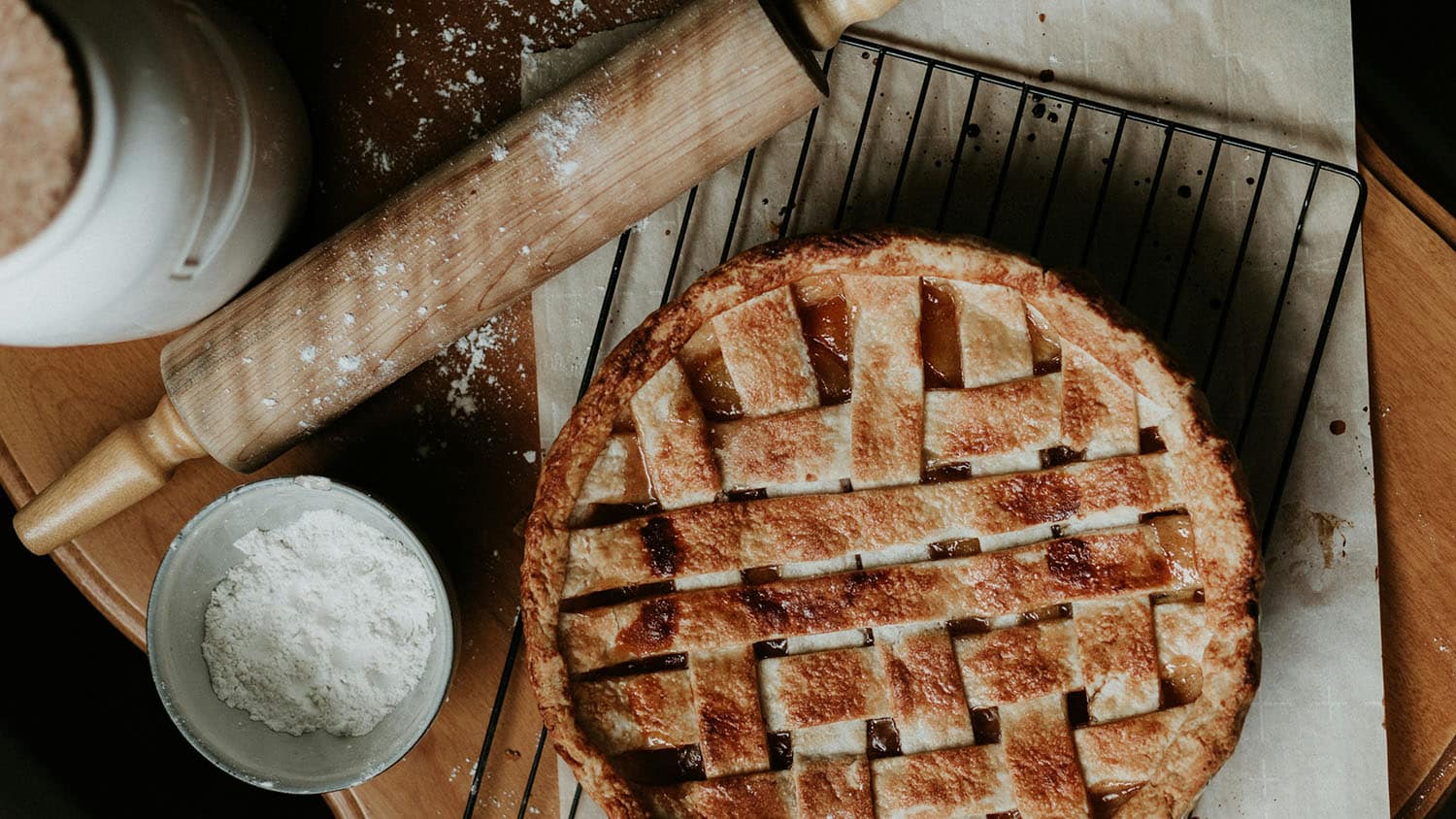How Long Is Homemade Pie Safe to Eat? And Other Thanksgiving Dessert Questions

Editor’s Note: This is a guest post by Ellen Shumaker, director of outreach and extension activities for Safe Plates, NC State’s food safety program. This post is part of a series that focuses on holiday food safety.
For those of us with a sweet tooth, the best part of Thanksgiving is the pie. But there are a few things to keep in mind if we want to make sure our special treats don’t accidentally make people sick.
A variety of pies are traditionally served at Thanksgiving based on geography, culture, and family traditions. Food safety considerations for pies include steps to consider during preparation and whether a pie should be refrigerated for safety.
Cross Contamination
One important food safety tip when preparing and baking pies is to avoid cross contamination. For example:
- Wash your hands before handling food and after handling raw ingredients like eggs, flour, raw poultry or meat.
- Avoid sampling raw crust. Raw flour has not been heat-treated and has been implicated in foodborne outbreaks of E. coli O157:H7.
- Clean and sanitize utensils and surfaces.
- Avoid cross contamination with raw products. If you bake your pies ahead of time, consider storing them separately from the turkey and other raw meats that could drip juices onto them.
Which Pies Should Be Refrigerated?
When determining whether a pie should be refrigerated, there are a few considerations. Primarily, we are focused on the sugar content and the pH (the level of acidity in a product). Sugar and high levels of acid help prevent the growth of bacteria that can make us sick. This means that many pies can be kept at room temperature for up to two days – or else the quality of the pies will suffer. However, there are a few exceptions.
Fruit pies: Apple pie has a high enough sugar content and low enough pH to prevent microbial growth. The same goes for other fruit pies like cherry, peach, and berry pies. These pies do not need to be refrigerated, although you may be able to extend their shelf life up to around seven days if you keep them in the refrigerator. Also, for quality reasons, if using sugar substitutes I recommend refrigerating fruit pies.
Pumpkin pie: This depends on whether it is store bought or homemade. Store-bought pumpkin pies are safe to keep at room temperature because they contain preservatives that make them shelf stable. Homemade pumpkin pies do not include these ingredients and so it is better to keep it refrigerated.
Custard and meat pies: Baked goods with custard, cheese, meat or vegetable fillings, or cream frostings should be refrigerated. This includes sweet potato pie, as well as pecan pie, which contains egg. Pies that need to be kept in the refrigerator can be kept up to seven days (just make sure your fridge temperature is at 41 degrees F or less).
Adding Alcohol Doesn’t Make Pies Shelf Stable
Some pie recipes include the addition of alcohol, like bourbon or rum. Even though alcohol has antimicrobial properties, there is no science to support the idea that including alcohol effectively reduces the ability of bacteria to grow in pies.


